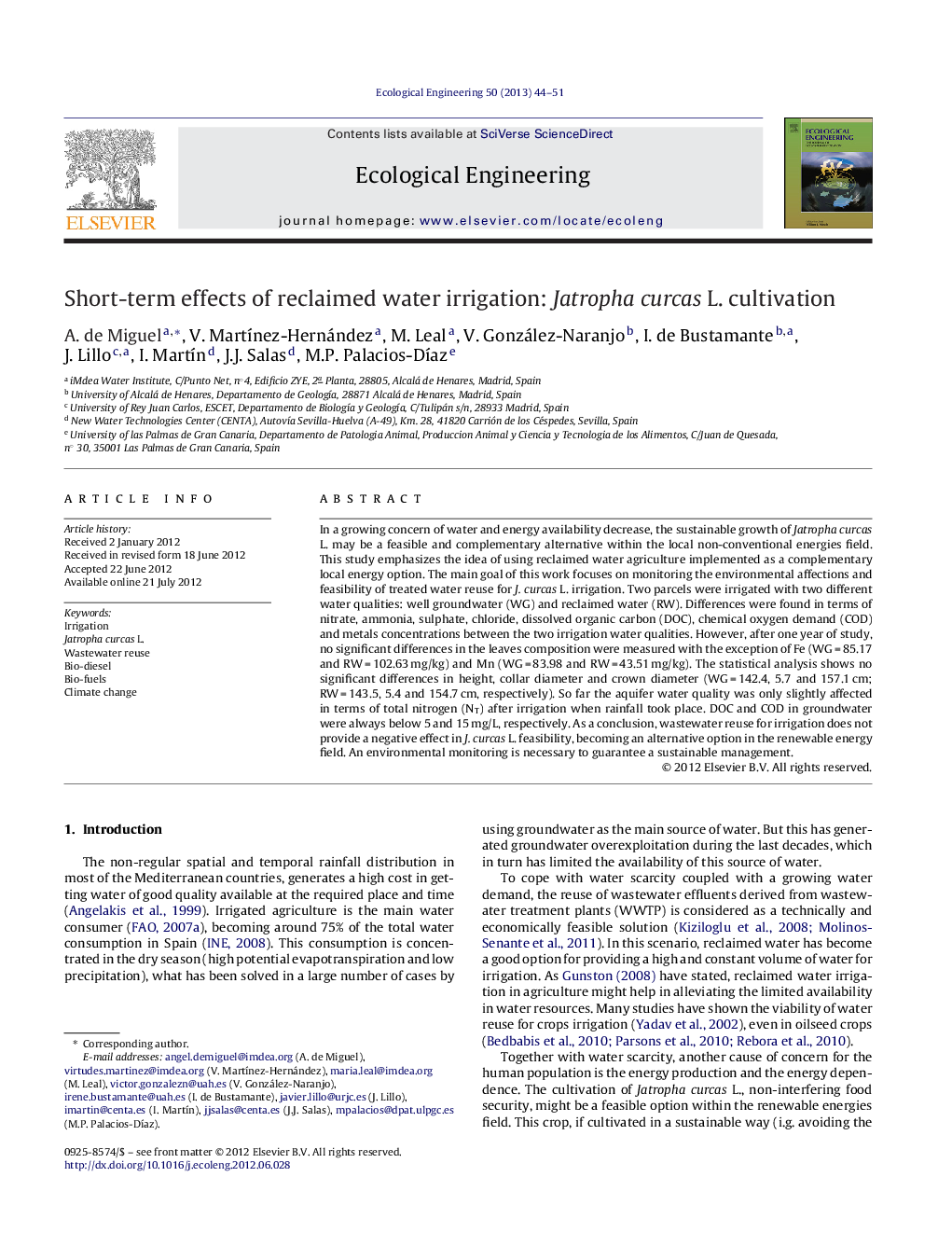| Article ID | Journal | Published Year | Pages | File Type |
|---|---|---|---|---|
| 4389865 | Ecological Engineering | 2013 | 8 Pages |
In a growing concern of water and energy availability decrease, the sustainable growth of Jatropha curcas L. may be a feasible and complementary alternative within the local non-conventional energies field. This study emphasizes the idea of using reclaimed water agriculture implemented as a complementary local energy option. The main goal of this work focuses on monitoring the environmental affections and feasibility of treated water reuse for J. curcas L. irrigation. Two parcels were irrigated with two different water qualities: well groundwater (WG) and reclaimed water (RW). Differences were found in terms of nitrate, ammonia, sulphate, chloride, dissolved organic carbon (DOC), chemical oxygen demand (COD) and metals concentrations between the two irrigation water qualities. However, after one year of study, no significant differences in the leaves composition were measured with the exception of Fe (WG = 85.17 and RW = 102.63 mg/kg) and Mn (WG = 83.98 and RW = 43.51 mg/kg). The statistical analysis shows no significant differences in height, collar diameter and crown diameter (WG = 142.4, 5.7 and 157.1 cm; RW = 143.5, 5.4 and 154.7 cm, respectively). So far the aquifer water quality was only slightly affected in terms of total nitrogen (NT) after irrigation when rainfall took place. DOC and COD in groundwater were always below 5 and 15 mg/L, respectively. As a conclusion, wastewater reuse for irrigation does not provide a negative effect in J. curcas L. feasibility, becoming an alternative option in the renewable energy field. An environmental monitoring is necessary to guarantee a sustainable management.
